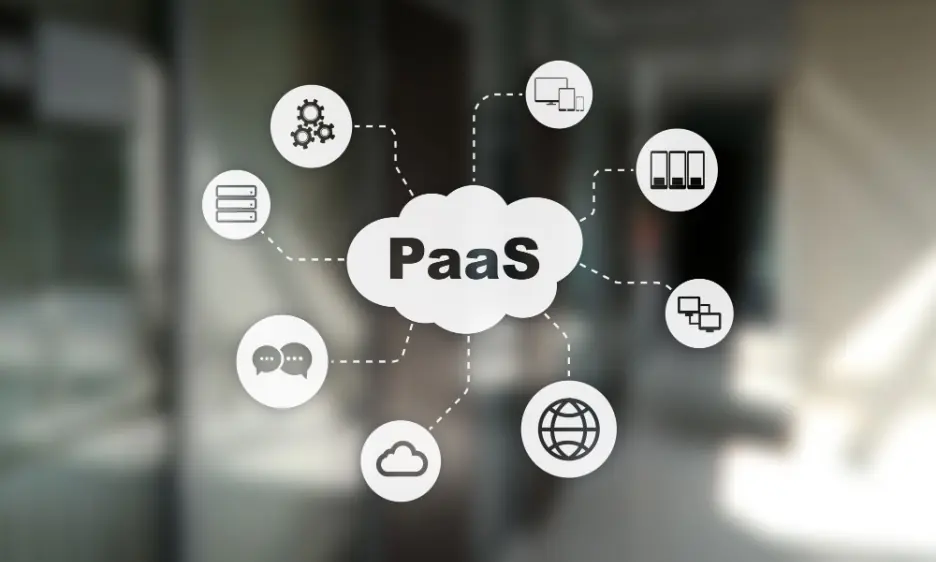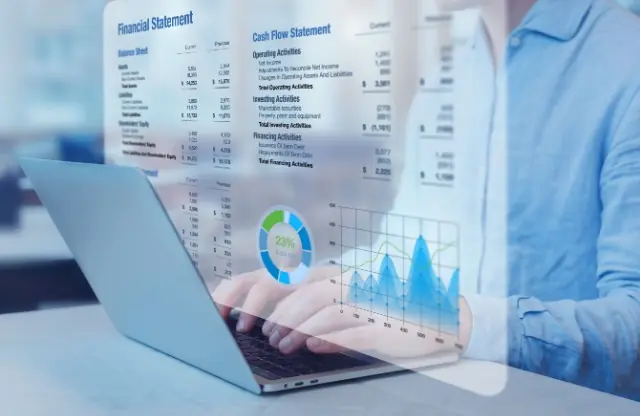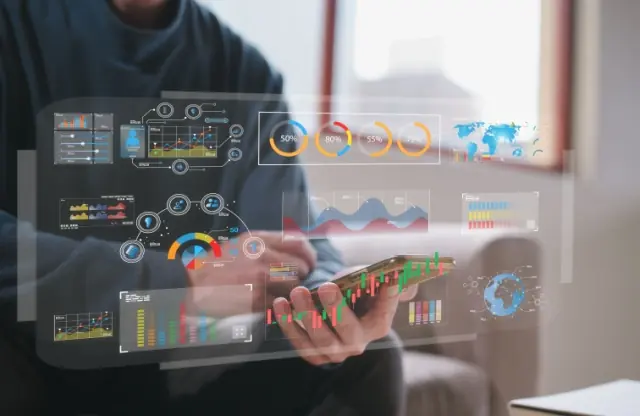How Product-as-a-Service (PaaS) makes Corporate Reporting Better
 Share
Share
 Copy Url
Copy Url

Product-as-a-service (PaaS) is reshaping how businesses operate in a sustainable world. The product-as-a-service business model focuses on access over ownership. Instead of selling products outright, companies retain ownership and offer them through subscriptions or usage-based systems. This approach supports the circular economy by promoting closed loop systems, reducing waste, and cutting down on the carbon footprint. It’s a win-win for businesses and the planet.
In this article, we’ll explore what product-as-a-service (PaaS) means, its growing importance in the circular economy, and why it’s becoming essential for corporate reporting. We’ll dive into the benefits PaaS offers in building a more sustainable future. You’ll also learn how it impacts financial and sustainability reporting. Finally, we’ll discuss how businesses can integrate PaaS into their reporting frameworks effectively.
Whether you’re a corporate leader or just curious about how companies are adopting greener practices, this article will offer valuable insights into the PaaS revolution and its role in creating a more sustainable economy. Let’s get started!

Understanding Product-as-a-Service (PaaS)
Product-as-a-Service (PaaS) is changing how businesses deliver products and services. This subscription-based business model focuses on access rather than ownership. This allows companies to become more sustainable. Many companies like Sonos and IKEA have adopted PaaS to offer their products through subscription services, aligning with circular economy principles.
Definition of Product-as-a-Service (PaaS)
Product-as-a-Service (PaaS) is a business model where customers access products through subscription or pay-per-use arrangements instead of purchasing them outright. This approach emphasizes delivering outcomes and experiences over selling physical goods. By retaining ownership, companies can ensure proper maintenance, upgrades, and eventual recycling, promoting sustainability and resource efficiency.
Relevance of PaaS in the Circular Economy
In the circular economy, the goal is to minimize waste and make the most of resources. PaaS supports this by creating closed loop systems where products are designed for durability, reuse, and recycling. By retaining ownership, companies can control the product lifecycle, ensuring items are refurbished or recycled at the end of their use. This reduces the carbon footprint associated with manufacturing new products and decreases waste.
5 Western Companies using PaaS
IKEA
IKEA offers furniture rentals as part of its product-as-a-service model. Customers can rent furniture, use it for a period, and return it. This approach extends the lifespan of products, reduces waste, and aligns with IKEA’s commitment to the circular economy.
Philips
Philips provides "Lighting as a Service" to businesses. Instead of selling lightbulbs, it installs and maintains energy-efficient lighting systems. This allows companies to save costs while Philips retains ownership, enabling recycling and promoting sustainability.
Zoomcar
Zoomcar operates a car-sharing service where users can rent vehicles for short periods. This model provides affordable access to cars without ownership and reduces the number of vehicles on the road, contributing to lower emissions.
Apple
Apple’s iPhone Upgrade Program lets customers access the latest iPhones through monthly payments. The company retains ownership, refurbishes returned phones, and resells them, reducing waste and supporting resource efficiency.
Sonos
Sonos offers a subscription service for its premium audio systems. Users pay a monthly fee to access the latest speakers and upgrades. This model fosters ongoing customer relationships while ensuring responsible reuse and recycling of devices.
5 Indian Companies using PaaS
Several Indian companies have also adopted the Product-as-a-Service (PaaS) model, offering innovative solutions across various sectors:
SUN Mobility
Offers Battery-as-a-Service (BaaS) for electric vehicles. Users can swap empty batteries for charged ones at swapping stations. This reduces costs and eases range concerns.
Revv Cars
Provides self-drive car rentals through subscriptions, letting users access vehicles without owning them. It offers flexibility and convenience for temporary vehicle needs.
Sarvatra Technologies
Delivers Platform-as-a-Service (PaaS) for banks, enabling digital payment services without requiring heavy infrastructure investment. This supports seamless electronic transactions.
Freshworks
Offers subscription-based customer engagement software. Businesses get tools for support and relationship management without large upfront costs. It includes updates and ongoing support.
Myntra
Runs an online marketplace for fashion and lifestyle products. Customers access a wide range of items without physical stores. Technology enhances customer experience and streamlines processes.
These companies showcase how the PaaS model is improving customer experience, supporting sustainability, and fostering innovation across industries.
Importance of PaaS in Corporate Reporting
Integrating PaaS into corporate strategies impacts various aspects of reporting:
- Revenue Recognition: Shifts from one-time sales to recurring revenue streams require new accounting methods.
- Asset Management: Companies must account for retained ownership of products, affecting balance sheets.
- Sustainability Metrics: Reporting should include how PaaS contributes to waste reduction and resource efficiency.
- Risk Assessment: Identifying and disclosing risks related to product maintenance and customer retention is crucial.
- Customer Relationship Management: Ongoing customer engagement metrics become vital in assessing business performance.
- Regulatory Compliance: Ensuring adherence to laws and standards related to service-based offerings is essential.
By addressing these areas, corporate reporting can provide a comprehensive view of a company's performance and commitment to sustainability in the context of PaaS.

Benefits of Product-as-a-Service (PaaS) in the Circular Economy
Product-as-a-service (PaaS) is a business model where companies provide products via subscriptions or pay-per-use, retaining ownership and responsibility. It supports the circular economy by boosting resource efficiency, reducing waste, and promoting sustainability. Prioritizing access over ownership helps businesses operate sustainably and better meet customer needs.
1. Resource Efficiency and Waste Reduction
PaaS enables companies to retain ownership, designing durable products that can be reused or recycled. This reduces waste and keeps resources in use longer, lowering environmental impact and supporting a sustainable economy.
2. Enhanced Customer Relationships
Offering services instead of ownership fosters continuous customer engagement. Businesses improve satisfaction and loyalty by fulfilling needs. Subscription models also enable personalized services and timely upgrades, enhancing the overall experience.
3. Stable Revenue Streams
PaaS provides steady income through recurring payments, ensuring financial predictability. This stability supports efficient planning and investment. Companies like Rolls-Royce use offerings like "Power by the Hour" to ensure consistent revenue and strong customer ties.
4. Improved Sustainability Reporting
PaaS helps businesses track and report sustainability efforts. Transparent reporting prevents greenwashing and shows commitment to reducing carbon emissions. Accurate reports enhance credibility and meet the demand for eco-friendly practices.
5. Encouragement of Innovation
PaaS drives innovation by pushing businesses to develop durable, efficient products and services. This fosters higher-quality offerings, opens new markets, and supports industry growth.
By integrating PaaS into strategies, companies gain resource efficiency, stronger customer relationships, stable revenue, improved sustainability reporting, and innovation. These align with circular economy principles, creating a sustainable and resilient business model.

Different Types of Product-as-a-Service Business Models
The types of product-as-a-service (PaaS) business models vary based on the industry and how the service is delivered. Here are some common types:
1. Usage-Based PaaS
Customers pay for the product based on usage.
Example: Printer services where businesses pay per page printed.
2. Subscription-Based PaaS
Products are offered on a subscription model for a fixed period or fee.
Example: Furniture rentals or bike-sharing services.
3. Outcome-Based PaaS
Payments are tied to achieving specific outcomes or results.
Example: Aircraft engine manufacturers like Rolls-Royce offer "Power by the Hour," where airlines pay for uptime instead of buying engines outright.
4. Sharing-Based PaaS
Multiple customers share access to the product, optimising its usage.
Example: Carpooling or shared workspace services.
5. Leasing-Based PaaS
Products are leased instead of being purchased outright, with maintenance included in the service.
Example: Industrial equipment leasing with support and maintenance.
6. Technology-as-a-Service (TaaS)
Technology products are delivered as a service, including software, hardware, and support.
Example: Cloud computing services like AWS or SaaS solutions.
7. Managed Services PaaS
Comprehensive management of a product’s lifecycle is included in the offering.
Example: Smart home systems where providers manage installation, monitoring, and maintenance.
These pricing models highlight the flexibility and adaptability of the PaaS model, catering to diverse customer needs across industries.

Implications of Product-as-a-Service (PaaS) for Corporate Reporting
Adopting the Product-as-a-Service (PaaS) business model significantly impacts corporate reporting. Companies must adjust financial statements, enhance sustainability disclosures, and address new risks. Understanding these implications is crucial for accurate and transparent reporting.
1. Financial Reporting Adjustments
Transitioning to PaaS changes how companies recognize revenue, manage assets, and divide costs. Unlike traditional sales, the PaaS revenue model involves recurring payments, affecting income statements. Companies offering products as services must also account for retained ownership, impacting asset management and depreciation schedules. Cost allocation shifts to reflect ongoing service delivery expenses.
2. Sustainability Reporting Enhancements
Implementing PaaS supports sustainable business practices. It promotes resource efficiency and reduces waste. Companies should disclose how this model helps achieve environmental goals, such as lowering carbon emissions. Transparent sustainability reporting prevents greenwashing. It also shows a genuine commitment to environmental responsibility.
3. Risk Management Disclosures
The PaaS business model comes with new risks. These include product maintenance liabilities and challenges in retaining customers. Companies must transparently report these risks, detailing strategies to manage them. This includes monitoring product performance and ensuring service quality without the need for customer ownership.
4. Operational Performance Metrics
Adopting PaaS requires tracking metrics like product usage rates and service uptime. These indicators provide insights into operational efficiency and customer satisfaction. Both of which are essential for comprehensive corporate reporting.
5. Regulatory Compliance
Offering products as services may subject companies to new regulations. Ensuring compliance with relevant standards is crucial. Companies must report adherence to these regulations to maintain transparency and avoid legal issues.
Integrating the Product-as-a-Service model into corporate strategies necessitates comprehensive adjustments in reporting practices. By addressing financial, sustainability, and operational implications, companies offer stakeholders a clearer understanding of their performance. This also highlights their commitment to sustainable business practices.

Integrating Product-as-a-Service (PaaS) into Corporate Reporting Frameworks
Integrating Product-as-a-Service (PaaS) into corporate reporting frameworks requires careful alignment with existing standards, development of relevant performance metrics, clear stakeholder communication, data-driven decision-making and integrating platform-as-a-service solutions. This ensures that the unique aspects of the PaaS model are accurately represented and understood.
1. Alignment with Reporting Standards
Companies integrating Product-as-a-Service (PaaS) into corporate reporting must ensure financial and sustainability reports reflect its unique features. Adhering to standards like the Integrated Reporting Framework highlights the connection between financial results and sustainability. This alignment clearly shows how PaaS drives value creation and supports sustainable practices.
2. Performance Metrics Development
Key performance indicators (KPIs) are crucial for tracking PaaS success. Metrics like customer retention rates, product lifecycle impacts, and environmental benefits offer valuable insights. For example, customer retention measures ongoing value for business customers, while lifecycle impacts reflect resource efficiency. These KPIs help track performance and guide improvements in PaaS offerings.
3. Stakeholder Communication Enhancement
Transparent reporting is essential to convey PaaS's value and impact to stakeholders. Companies must explain how the model aligns with sustainable practices, reducing waste and improving resource use. Highlighting these benefits builds trust and demonstrates a commitment to responsible business trends.
4. Data-Driven Decision Making
Using data analytics in reporting enhances the evaluation of PaaS initiatives. Analytics track product performance, customer behaviour, and environmental outcomes. These insights identify trends, optimize operations, and refine offerings. Reporting these findings adds value for stakeholders and shows dedication to sustainability and innovation.
5. Integration of Platform as a Service (PaaS) Solutions
Platform-as-a-Service solutions improve reporting efficiency through real-time data collection and analysis. These tools ensure reports are accurate and up-to-date. By leveraging such technologies, companies streamline reporting processes and provide timely insights into product and customer interactions.
By addressing these areas, businesses can successfully integrate the Product-as-a-Service model into corporate reporting frameworks, ensuring transparency, efficiency, and alignment with sustainability goals.

Showcasing PaaS Through Report Yak's Expertise
The Product-as-a-Service (PaaS) model provides businesses with a strong framework to improve sustainability. It helps strengthen customer relationships and supports the circular economy. Retaining ownership and focusing on access instead of ownership allows companies to increase resource efficiency. This approach reduces waste and fosters long-term value creation.
Integrating PaaS into corporate reporting requires careful planning. Businesses must address financial, sustainability, and operational requirements.
To fully use PaaS, companies need to align with reporting standards. Establishing key performance metrics is also essential. Transparent communication with stakeholders ensures clarity and trust.
Using data analytics and platform-as-a-service tools improves reporting accuracy and enhances efficiency. These practices offer stakeholders a clear understanding of core business activities, sustainability efforts, and adaptability to new trends.
At Report Yak, we specialize in creating high-quality corporate reports tailored to your needs. Our award-winning designs effectively showcase your PaaS strategies and ensure compliance with reporting standards. Explore our Showcase of LACP award-winning reports.
To book a consultation, call 1800 121 5955 (India), email contact@reportyak.com, or WhatsApp us your contact details for a prompt response. You can also fill out the Contact Form with your project details.
Related Posts
-
Integrated Reporting Made Easy For Modern Companies
annual reportAnnual Report design
+6
Dec 31, 2025Share
Copy Url
Simplifying ESG Disclosure for Better Impact
corporate reportingenvironmental and social initiatives
+6
Aug 28, 2025Share
Copy Url
GRI Sustainability Taxonomy: Learn How to Turn Data Into Advantage
corporate governancecorporate reporting
+11
Jul 1, 2025Share
Copy Url


